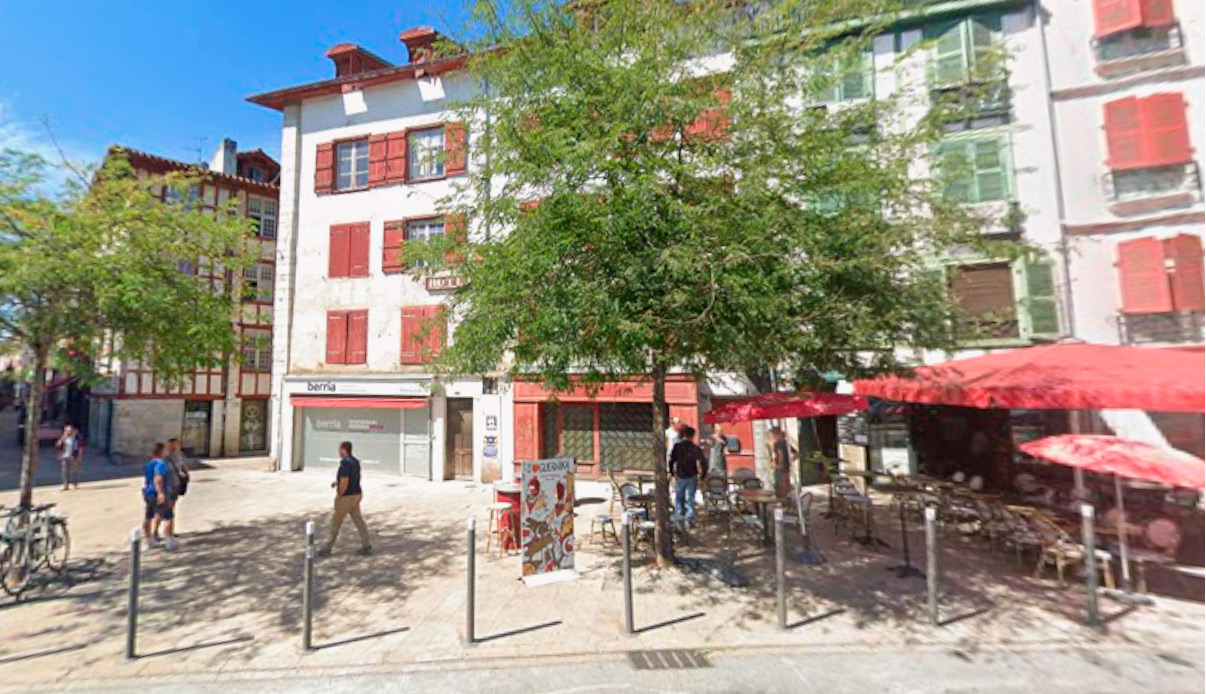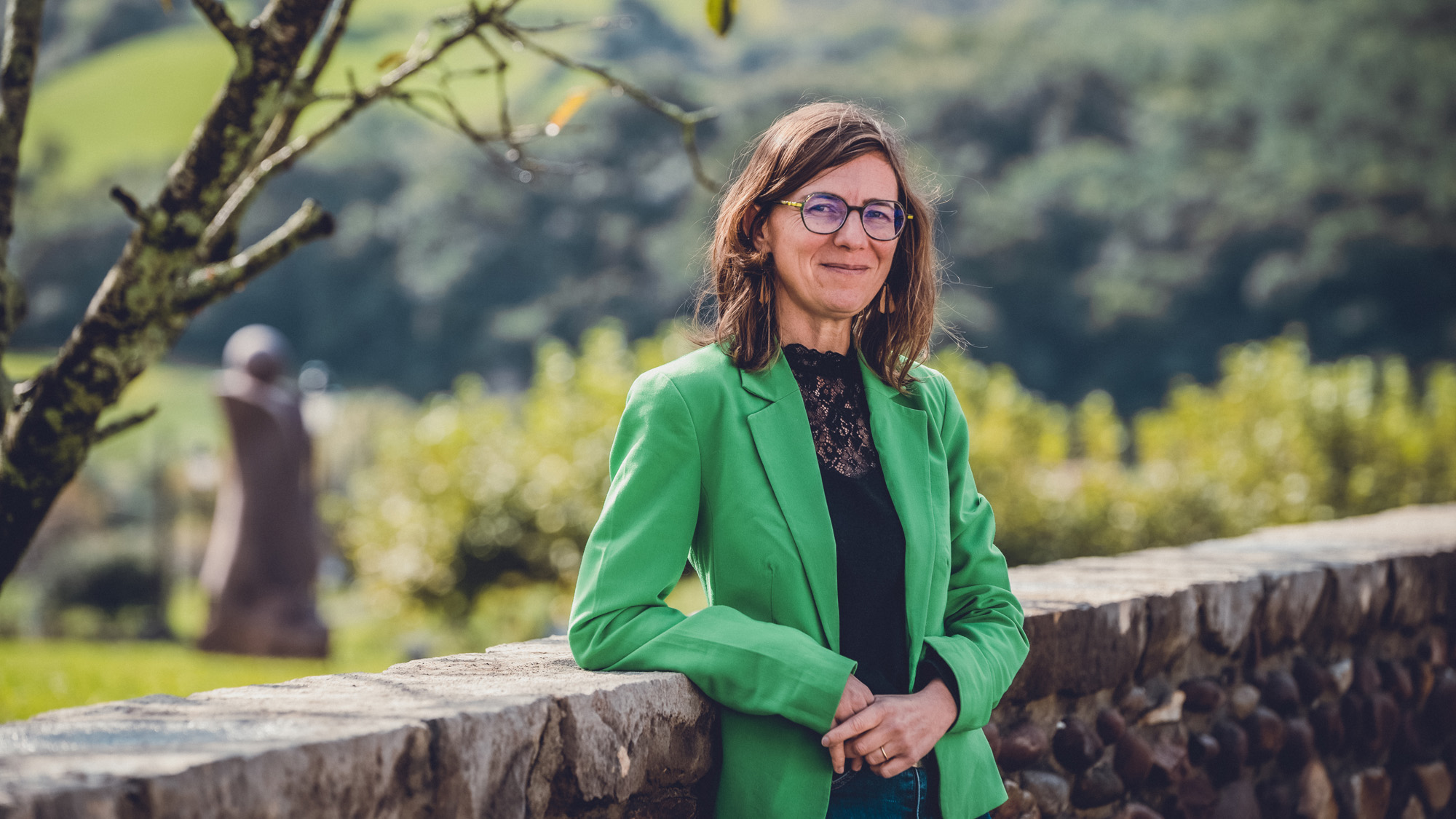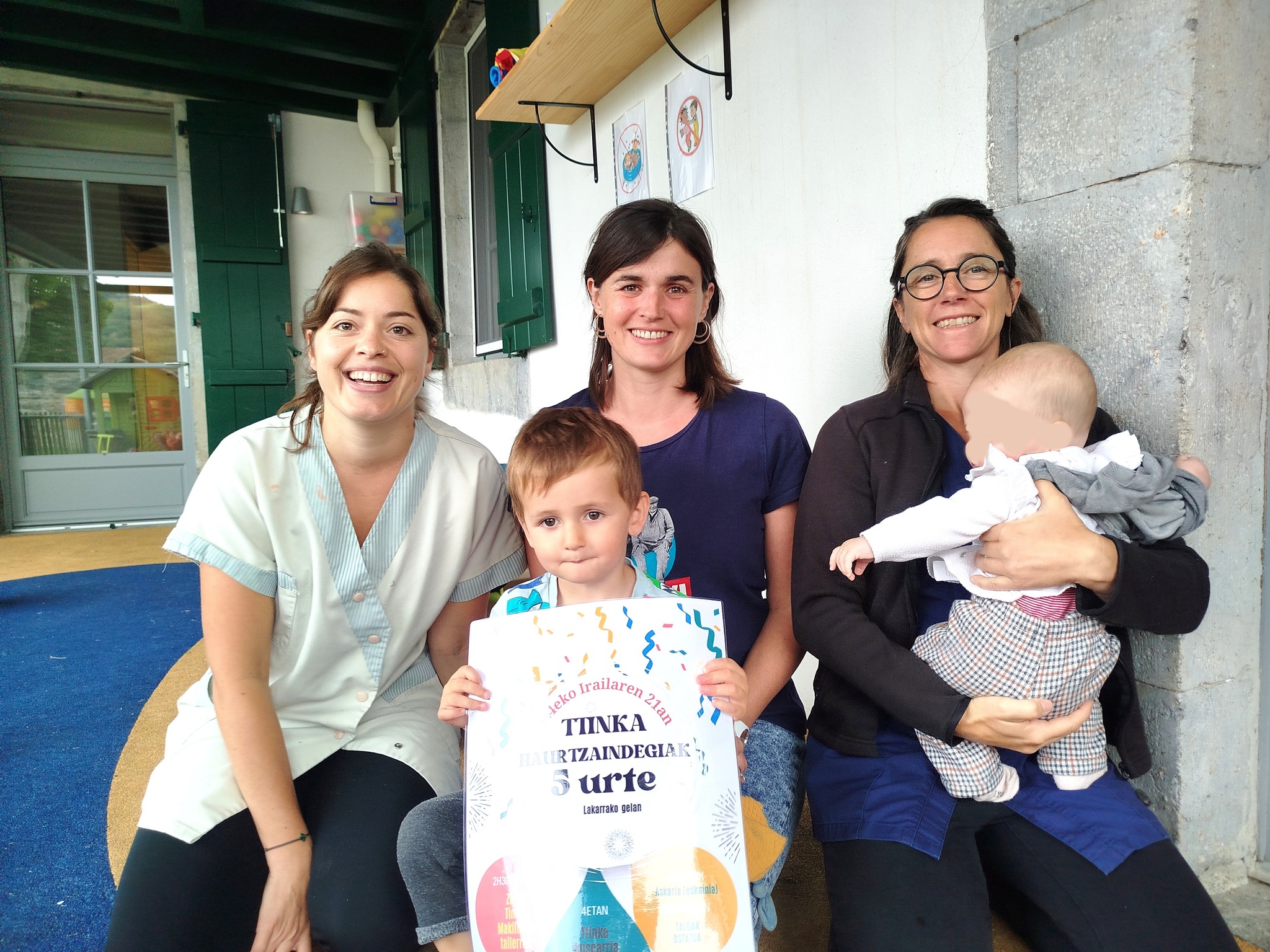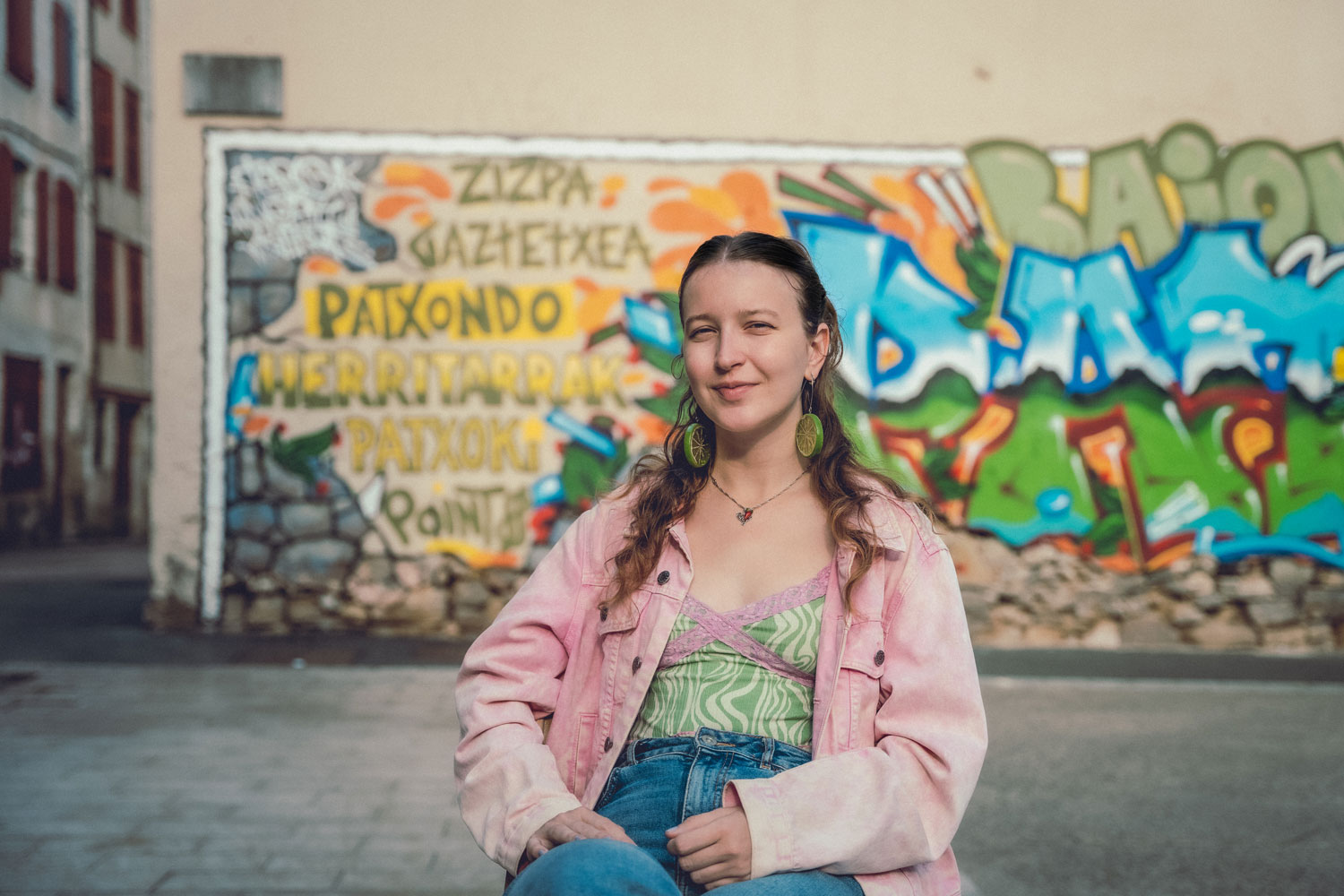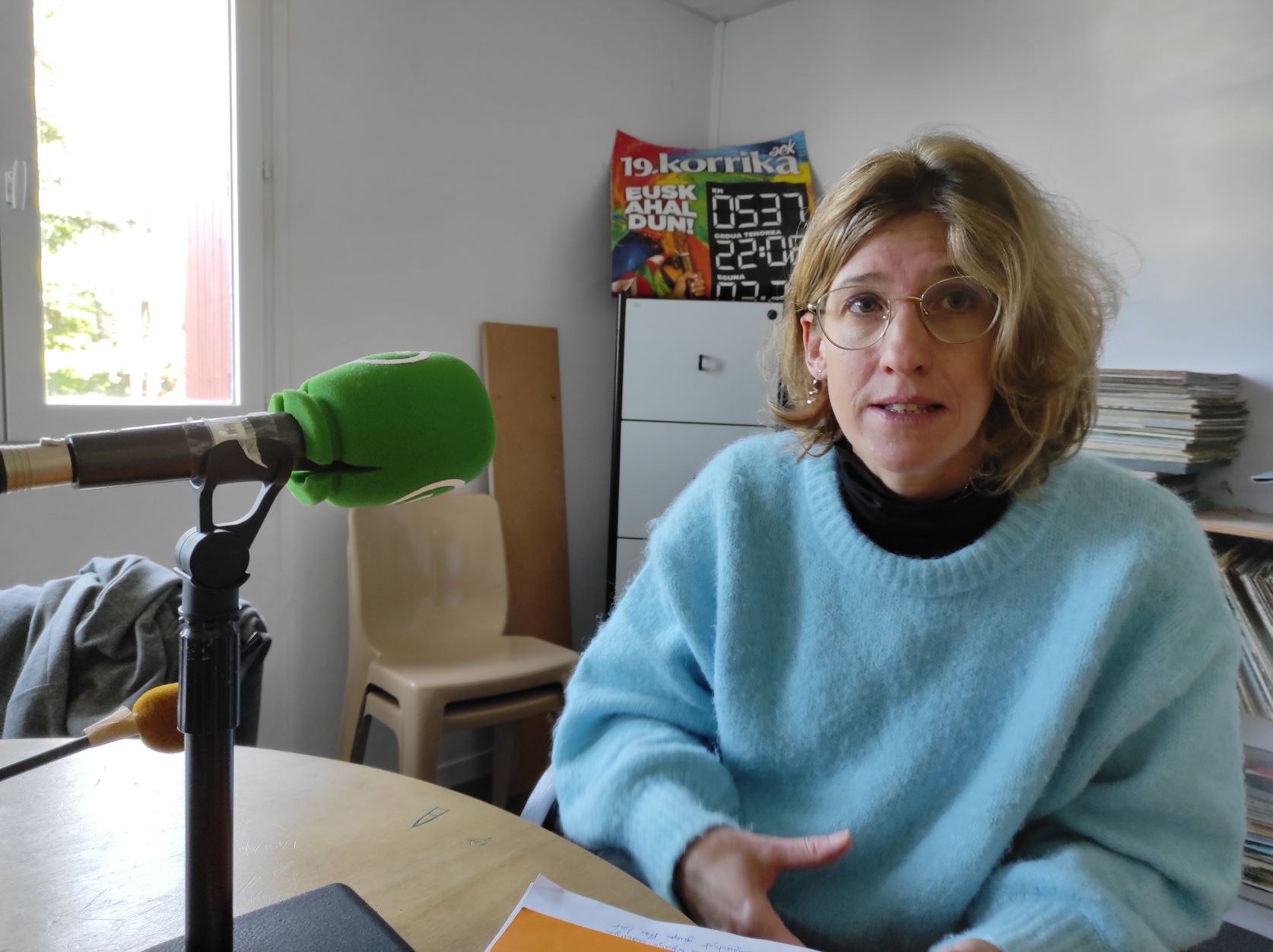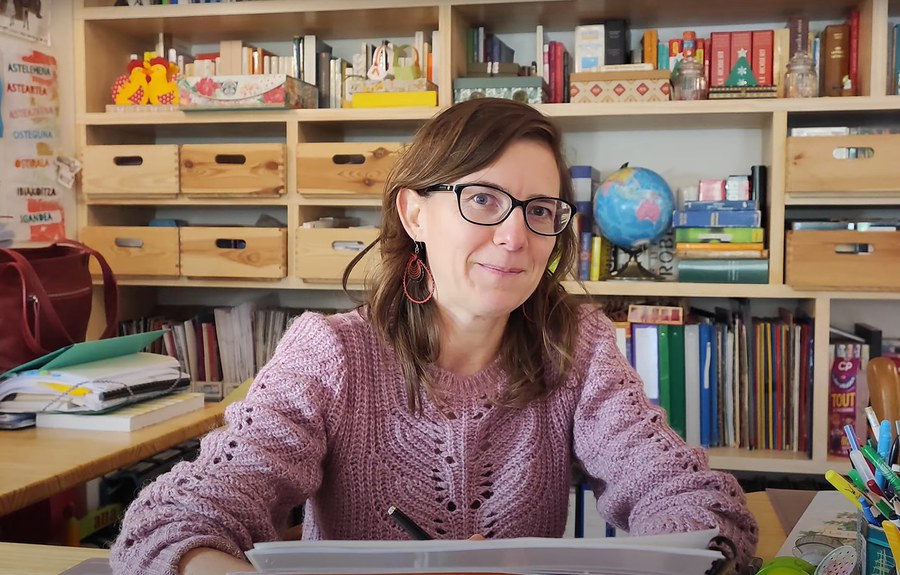Legislative support for children who want to study in Basque
- A law has been introduced which will be a milestone in the French Education Code. Generalisation and the model of immersion of teaching in local languages in public schools can be achieved. If there is no possibility of schooling in the locality in the local language, in the case of children going to the nearest school, the City Council must subsidize the immediate Centre or City Hall. Learning in the local language is a right, not a whim.
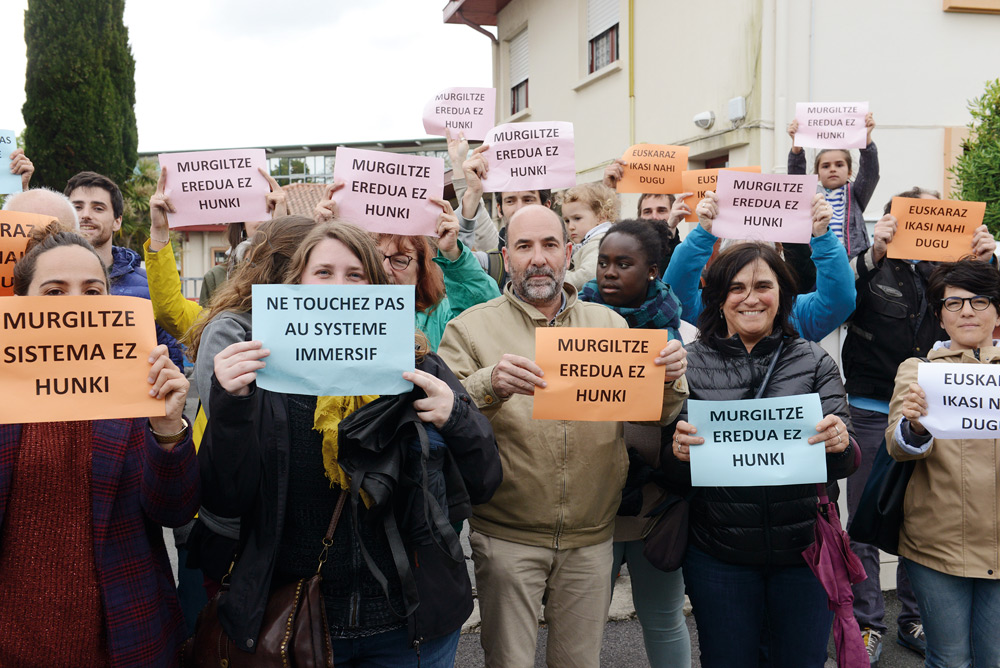
A significant crack has been opened in the French State. Defeat for the members of the government for a kind of rupture, and victory for all the chinarreros struggling on the long road. Contrary to the will of the Minister of Education, Jean-Michel Blanquer, on 8 April Parliament adopted a new law in which the teaching of minority languages will have a more fixed scope in public schools. It shall be included in the Code of Education. Once in force, every public school in the Northern Basque Country must draw up and propose an offer in Basque. It has never been known.
“She is going to ask for time and work, but it is certainly very good news for the cultural agents of the Basque Country,” said Marie-Andrée Ouret, president of the association of fathers and mothers of the bilingual branches of public education Biga Bai. It says that it came as a surprise, and so does Céline Etxebarn, of the association of parents Ikas Bi, who did not believe, at least at the beginning, that that bill promoted by a small parliamentary group, emptied of elements at first reading by the French Parliament, would have been approved in its entirety once, when the ruling party, La République En Marche, was disagreeing.
Since 1951, no law on the teaching of local languages has been adopted. Despite dozens of bills, they were debated and rejected in the Chamber at best, many of which were not forthcoming either. “For us, that’s why it’s a historic vote,” said Basque Confederation spokesman Sébastien Castet. The newly passed law came to Parliament for the first time in December 2019, with Breton Deputy Paul Molac. At first reading, Members rejected the basis of education and approved the rest, but what remained was, according to Castet, “generally modest”.
The bill came to the second chamber, and the senators, contrary to the will of the deputies, agreed to reintroduce the parked articles and were considered fully accepted. The Basque Confederation and Seaska, among others, are immersed in the collective Pour que vivent nos langues together with agents from other local languages, and this group assumed the responsibility of meeting with members of the Chamber, parties and linguistic and educational agents to explain the importance of this law. Finally, in this regard, all the articles in the Molac Bill have been approved by Parliament; among the members of La République En March, more than half have not followed the opinion of the Minister of Education and the government.
Generalized and immersed
It is not an easy option for boys and girls to attend Basque school in Iparralde. In addition to Seaska, there is the possibility of studying in Basque in the public school and, for the complex, the interviewees are successful (about 20 schools in the Northern Basque Country). It is complex, since until now the model of immersion in Basque is oriented as experimentation in public schools. Otherwise, to be able to teach in the local language, either it is taught as a separate subject, or a bilingual department is required – that is, half time in French and half time in Basque –. For experimentation, they have to prepare and present a five-year proposal, and its elaboration requires a very heavy workload, because they impose “many obstacles”: “Parents have to be brought together, do surveys, ask for permits, elaborate dossiers and long reports, meet with the ministry…”. The new law should alleviate these obstacles, which happened in the capital (Lapurdi) at the beginning of the course would not be repeated.
The main novelty will be the generalization of the teaching of Euskera. Castet points out that the law can make it possible to move from a policy on demand to a policy within supply: “From now on, public schools will have the obligation to propose a model of teaching in Basque or Basque. Instead of the parents' proposal, it will be the school itself that proposes it. It is offered to all students and, obviously, if the parents do not want to do so, they will have to express it, not the other way around.”
Corsica is the territory that already has this model in motion. Therefore, from the entry into force of the law, in each specific area of the French State it will be possible to study in the local language. Currently, 40% of children learn Basque, in the public, in Seaska or in the private Catholic. Etxebarne, like the other interviewees, has been very optimistic, saying that “it is a very big step” and that “it allows to develop in the immersion system”.
As this law directly affects public schools, Seaska ikastolas will not undergo significant changes. The immersion system had been in place for a long time, but this law gives legitimacy to its action. The president, Peio Jorajuria, pointed out that for Seaska it is “a great symbolic support”: “It is a law with great potential and we are very happy. This last year we have often been in Paris, because, through the Pour que vivent nos langues collective, we have been very active in building this law.”
The concern for the revolution
The measures must be implemented even with the adoption of the law. The education system does not change from day to day, as Etxebarn has pointed out. “We in the Basque Confederation remain optimistic about the possibilities for redress,” said Castet. Any parliament can bring the appeal on the grounds that it is unconstitutional and the deadline is still open. “At least I do not think they can tell us that it is unconstitutional: what was approved is already being done in practice in Corsica.”
What concerns them is the decrees, circulars and regulations that may come from the hands of the law. Minister Blanquer is competent, within the law, to design and enforce these decrees, and he does not trust the government too much. At least Ouret: “The French government will need to change an adjusted position, but we are well aware of the administration and perhaps a thousand ways of putting obstacles.”
Jorajuria says that, although he managed to convince for the vote, the model of immersion is the one that gives him the most reticence: “If minority languages and cultures are conducive to teaching, but not so much to immersion. France has always had the objective of historically delimiting and this law, what we have achieved, goes beyond that”. What everyone is clear about is that they will have to follow “closely” the movements of the administration.
Over the years and, above all, thanks to the work and struggle of the Pour group that vivent us for the last year, the law has come; the four interviewees have stressed the importance of the organization. They proudly say that the law passed by Parliament has been a “great revolution,” because it is “historic” in the educational model. “With the wind we will have to take advantage of it for once,” Castet said.
In addition to the field of education, the law also channels other rights. Among others, the regulation of bilingual public signage and the possibility of writing diacritic signs such as ñ-a in civil state documents.
The problem of the afrancession of the names of the places of Euskal Herria is not only due to the lack of consideration of the language in the signaling panels, but also to the execution of a decision on the domiciliation that was taken a few years ago.
Ultimately, the... [+]
Larunbatean ospatu dituzte Ttinka mikro haurtzaindegiaren bost urteak Lakarran. Baxe Nafarroko euskara hutsezko egitura bakarra da, Euskararen Erakunde Publikoaren B ziurtagiriduna.
On May 17, five Euskaltzales of Ipar and Hego Euskal Herria performed an action coinciding with the call made by the students of the Bernat Etxepare lyceum to mobilize in favor of the Basque. On the wall of the Baiona Subprefecture, a message was sent to the authorities of the... [+]
“Geldi euskara zapaltzea” lema berriz hartu du Euskal Herrian Euskaraz taldeak larunbatean egin duen prentsaurrekoan. Maiatzaren 17an, esaldi hori Baionako suprefeturan tindatzeaz akusaturik, irailaren 10ean epaituko dute Gorka Roca Torre.
Ikasturte honetan, lehen mailako ehun eskola elebidunetan 5.700 ikaslek ikasiko dute. Bigarren mailan hamasei kolegio eta lau lizeotan 1.600 dira. Zailtasun nagusia aurten ere kolegioan euskararen eta frantsesaren arteko oren parekotasuna erdiestea da.
Start of the summer. EHZ festival hangover (atx, headache). You want to breathe after a charged course. Flush the head. Reconnect key elements. Take some time with family, see old friends again and rest (a little) in the daily struggle. Really? !...
As a family, walk to the... [+]
Ms. Judge of the Bayona Court of Justice dismisses:
In March, I was judged by some Euskaltzales in Baiona for taking part in some of the actions we have taken to denounce the unfair treatment suffered by the Basque authorities in the French state. At the beginning of the trial,... [+]
Maddi Kintanak Baiona, Angelu eta Miarritzeko gazteen euskara aztertu du bere tesian. Hitz berriak sortzen dituzte baina baita hitzak beste hizkuntzetatik hartzen ere, besteak beste, interneten eraginez.
"Euskara eta euskal literatura, programaketatik ikasgelara" jardunaldian parte hartu zuen Katixa Dolhare Zaldunbidek. Seaskak eta UEUk antolatu Udako Ikastaroen barne. Bere problematikak horiek ziren: Zer leku du literaturak hezkuntza programetan eta nola landu euskal... [+]
Iñaki Iurrebaso soziolinguistak euskararen egungo egoeraren argazkia egin du Baionan iragan zen Hizkuntz politikari buruzko ikastaroan, muga-gaindiko ikastaroen kari.











